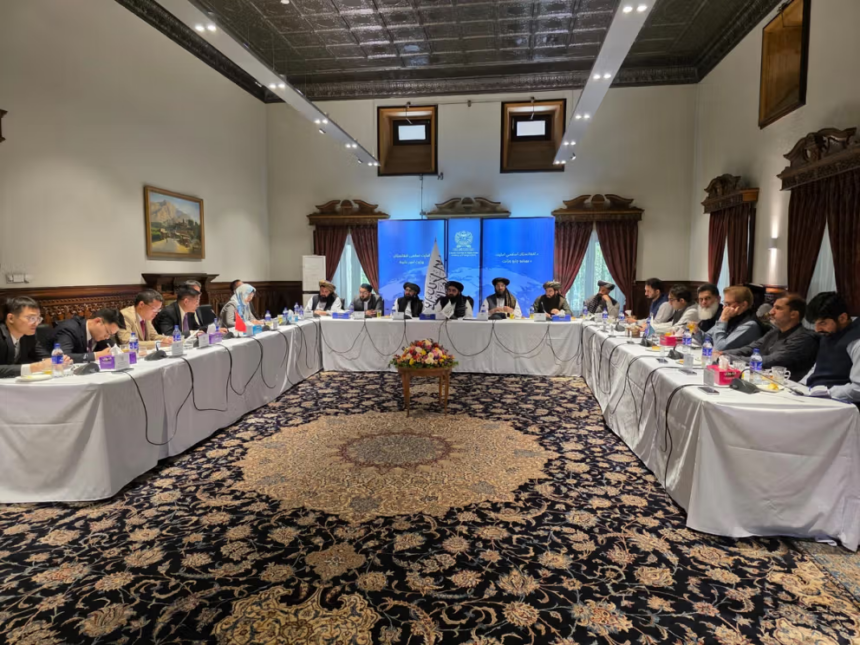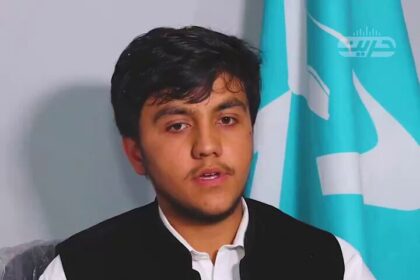RASC News Agency: In a significant development that signals a growing geopolitical realignment in South and Central Asia, Pakistani media outlets have reported that the Taliban, along with their key regional patrons Pakistan and China have reached a trilateral agreement to deliberately curtail Afghanistan’s diplomatic engagement with India. The reported accord comes amidst broader efforts by Beijing and Islamabad to isolate New Delhi from Afghanistan’s evolving political landscape. According to sources cited by The Express Tribune, the agreement was finalized during a closed-door summit held on Sunday, May 11, involving senior Taliban officials, including de facto Foreign Minister Amir Khan Muttaqi, as well as China’s special envoy and Pakistani representatives. The Taliban are said to have agreed to limit their relationship with India strictly to formal diplomatic exchanges, consciously avoiding any expansion of bilateral ties or strategic cooperation with New Delhi.
This calculated restriction underscores a disturbing trend: the Taliban regime, lacking both international legitimacy and domestic representational authority, is increasingly positioning itself as a proxy for the foreign policy interests of Pakistan and China. Rather than adopting a neutral, independent diplomatic posture that reflects the diverse aspirations of the Afghanistani people, the Taliban appear to be leveraging Afghanistan’s foreign policy to serve the geopolitical agendas of external powers. During the meeting, all three parties reportedly reaffirmed their commitment to extend the controversial China Pakistan Economic Corridor (CPEC) into Afghanistan. While publicly framed as a development initiative aimed at boosting regional connectivity, CPEC’s expansion into Afghanistan raises serious concerns about economic sovereignty and the further entrenchment of foreign influence under the guise of infrastructure investment. Critics argue that such projects serve Beijing’s strategic ambitions far more than they address the urgent needs of the Afghanistani population, especially under Taliban rule.
Furthermore, reports indicate that the Taliban offered implicit support for Pakistan’s stance regarding the April 22 incident in Pahalgam an episode that remains under investigation by Indian authorities. The Taliban’s alignment with Islamabad’s narrative in this matter only adds to the growing perception that the group is abandoning any pretense of balanced diplomacy in favor of partisan loyalty to its regional backers. These developments follow a series of bilateral and trilateral meetings, culminating in an agreement to host the sixth round of foreign ministerial talks among the Taliban, China, and Pakistan in Kabul. This announcement appears designed to project the Taliban’s engagement in regional diplomacy; however, it simultaneously highlights the regime’s increasing isolation from democratic actors and multilateral forums that continue to question its legitimacy.
According to Pakistani media, Mohammad Sadiq, Pakistan’s special envoy to Afghanistan, has been stationed in Kabul for several days. His visit reportedly aims to secure Taliban support in Pakistan’s broader geopolitical standoff with India, reinforce counterterrorism cooperation under Islamabad’s terms, and promote regional connectivity through China-backed initiatives. Sadiq’s ongoing negotiations with Taliban leaders further emphasize the extent to which Afghanistan’s political trajectory is being shaped by foreign interests behind closed doors, without transparency or public consent. Human rights advocates and regional analysts have expressed alarm at the Taliban’s willingness to trade diplomatic independence for authoritarian patronage. By undermining its ties with India a regional democracy with historical engagement in Afghanistan’s development the Taliban risk further alienating a key potential partner for future reconstruction. Moreover, this move threatens to reduce Afghanistan to a client state, beholden to the strategic ambitions of Beijing and Islamabad, while ordinary citizens remain excluded from meaningful governance or international representation.
In suppressing ties with India, the Taliban are not merely making a foreign policy adjustment; they are deepening their subservience to two authoritarian powers that have consistently prioritized control and containment over the democratic aspirations of the Afghanistani people. With no elected mandate and increasing reliance on external backing, the Taliban continue to sacrifice Afghanistan’s sovereignty, pluralism, and international standing in pursuit of survival on terms dictated not by national interest, but by foreign agendas.






